Now and then: Changing funeral trends
Updated: 2015-04-05 06:09
(chinadaily.com.cn)
|
||||||||
Rest in space
Like the Chinese expression: "A falling leaf returns to its roots," Chinese people have traditionally wished to be buried in their hometown, no matter how much trouble it may cause.
The most expensive, at 75,000 yuan ($12,000), will "launch the ashes on a voyage through deepest space on a permanent celestial journey."
Although the cheapest deal costs no more than the popular iPhone 6S, Biian has not had a single client since being authorized two years ago by Celestis Inc. which introduced memorial spaceflights in 1997.|
Xu Yi, one of the founders of Biian - which literally means "the other shore" - said many enquiries came from retirees who formerly worked in the aeronautical and space technology industries, "who wish to rest in space", but that no firm reservations have been made.
He thinks opposition from family members made the pensioners give up on the idea. "Chinese traditionally want to keep the ashes and not be separated from them," Xu said.
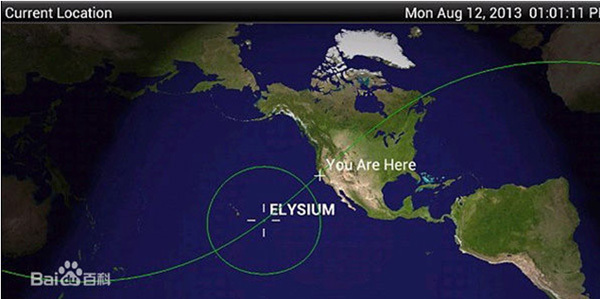 |
|
A screen shot of a smart phone app that tracks the location of a loved one's remains. [baidu.com] |
Like the Chinese expression: "A falling leaf returns to its roots," Chinese people have traditionally wished to be buried in their hometown, no matter how much trouble it may cause.
But while more Chinese are opting to bury their loved ones at sea it doesn’t necessarily follow that people would take a step much further – space funerals.
A Beijing undertaker is offering China's first space burial service, with the cheapest package starting at 5,600 yuan ($896.4).The most expensive, at 75,000 yuan ($12,000), will "launch the ashes on a voyage through deepest space on a permanent celestial journey."
Although the cheapest deal costs no more than the popular iPhone 6S, Biian has not had a single client since being authorized two years ago by Celestis Inc. which introduced memorial spaceflights in 1997.|
Xu Yi, one of the founders of Biian - which literally means "the other shore" - said many enquiries came from retirees who formerly worked in the aeronautical and space technology industries, "who wish to rest in space", but that no firm reservations have been made.
He thinks opposition from family members made the pensioners give up on the idea. "Chinese traditionally want to keep the ashes and not be separated from them," Xu said.
- HK commemorates 25th anniversary of Basic Law
- Chinese city removes family consent provision for body donation
- Solar Impulse 2 Pilot appeals for clean future
- Chinese vice premier meets Thai princess
- Northeast Chinese government fined for destroying family tombs
- China live broadcasts pandas' failed natural mating
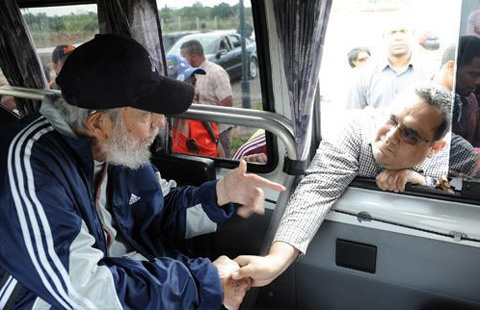
 Former president Fidel Castro appears in public in Cuba
Former president Fidel Castro appears in public in Cuba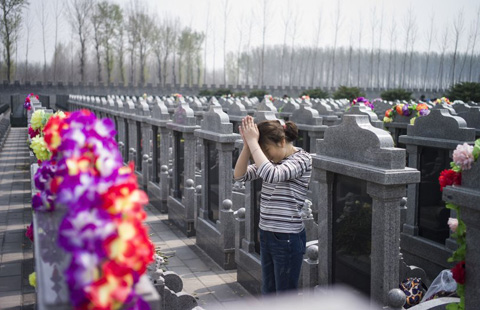
 Now and then: Changing funeral trends
Now and then: Changing funeral trends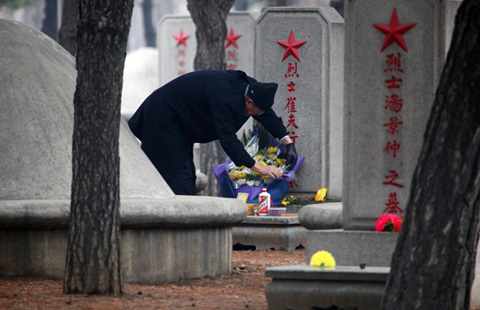
 Chinese honor war heroes on Tomb Sweeping Day
Chinese honor war heroes on Tomb Sweeping Day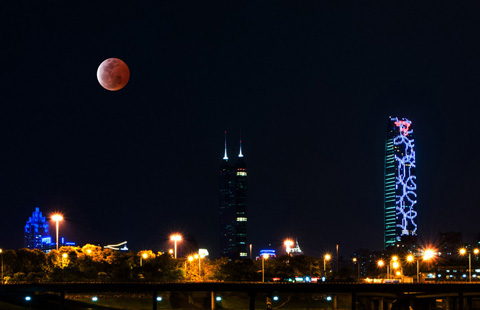
 Lunar eclipse turns the moon 'blood red'
Lunar eclipse turns the moon 'blood red'
 2015 New York International Automobile Show kicks off
2015 New York International Automobile Show kicks off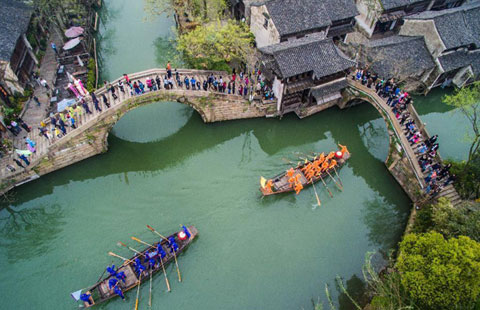
 Ancient 'Xiangshi' kicks off in Wuzhen
Ancient 'Xiangshi' kicks off in Wuzhen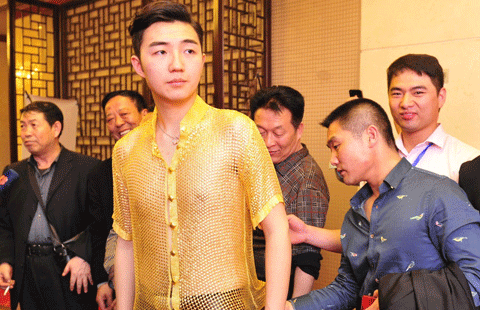
 Golden moments at jewelry show
Golden moments at jewelry show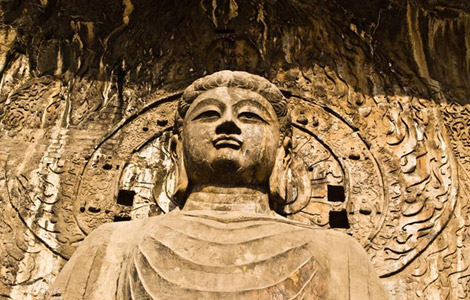
 Luoyang, the ancient capital of thirteen dynasties
Luoyang, the ancient capital of thirteen dynasties
Most Viewed
Editor's Picks

|

|

|

|

|

|
Today's Top News
China promotes eco-friendly burials
China to develop city clusters along middle reaches of Yangtze
HK commemorates 25th anniversary of Basic Law
Family consent not needed to donate corpse for research in Guangzhou
Xi plants roots of
green awareness
Li backs firms' global vision
China to standardize energy conservation by 2020
More Chinese, US pilots killed in anti-Japanese invasion war identified
US Weekly

|

|







